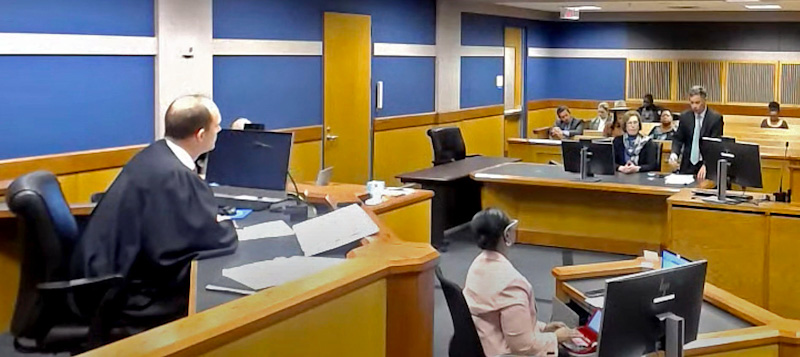Judge ordered removed for ‘troubling inability to conform his behavior’ to judicial standards
Judiciary
Judge ordered removed for ‘troubling inability to conform his behavior’ to judicial standards
May 8, 2024, 10:10 am CDT
A California judge who hoped to find the “mole” cooperating with ethics investigators sought a review of employee emails and the hiring of outside counsel to complete the investigation, according to a May 2 decision ordering his removal from office. (Image from Shutterstock)
A California judge who hoped to find the “mole” cooperating with ethics investigators sought a review of employee emails and the hiring of outside counsel to complete the investigation, according to a May 2 decision ordering his removal from office.
Judge Tony R. Mallery of Lassen County, California, committed 23 acts of willful misconduct and 36 acts of prejudicial misconduct, according to the decision by the California Commission on Judicial Performance.
Law360 has the story.
The commission said Mallery engaged in a course of misconduct over a significant period of time.
“The misconduct is wide-ranging and reflects either a troubling inability to conform his behavior to appropriate judicial standards or a lack of understanding of what being a judge is and requires or both,” the commission said.
Gregory Dresser, director and chief counsel for the commission, told Law360 that Mallery “tried to interfere with the commission’s investigation, he retaliated against witnesses … and he gave false testimony under oath.”
In Dresser’s view, those three things combined required Mallery’s removal from office.
According to the commission, factual findings included:
• The court’s administrative manager said Mallery wanted to know who was “ratting” on him to ethics investigators and suggested that she could review employee emails “to find out who the ‘mole’ was.” He also reportedly said he would “go postal” if the California Commission on Judicial Performance removed him from office.
• Mallery asked the Judicial Council of California to investigate employee emails to outside parties in an alleged quest to find out who was cooperating in the ethics investigation. He allegedly cited security concerns without disclosing upfront that he was under investigation by the California Commission on Judicial Performance.
• Mallery “usurped the role of prosecutors” when he tried to eliminate traditional plea bargaining, citing public outrage over handling of crime in the county. His plan was to offer his own deals to defendants after hearings.
• When speaking to attorneys about plea deals, Mallery indicated that he would base decisions on improper factors, such as public perception and political ramifications. One public defender testified that Mallery asked whether she had heard of Judge Persky, a reference to California Judge Aaron Persky, who was recalled after imposing a lenient rape sentence. Mallery reportedly said Persky is “standing in the unemployment line for a lenient sentence, and I am not going to be in that position.”
• Mallery retaliated and “lashed out” at attorneys who sought his recusal in cases through peremptory challenges. He stopped appointing the attorneys to cases, and in one instance, he asked an attorney with a scheduling conflict to show cause whey she shouldn’t be fined $1,500 for appearing remotely at a hearing.
• Mallery “engaged in shifting factual claims with respect to some allegations,” in the words of the commission and was reluctant to acknowledge that he committed many of the alleged acts.
• Mallery made inappropriate comments to courthouse staff, referring to a Hawaiian staff member as “Queen Latifah” and a “Hawaiian princess.” He also commented on another staffer’s designation as “life of the party” in her high school yearbook.
The removal decision becomes final in 30 days, but it can be reviewed at the discretion of the California Supreme Court, according to SierraDailyNews.com.
Mallery’s lawyer, Christopher R. Ulrich, did not immediately respond to an ABA Journal email and a voicemail seeking comment.






